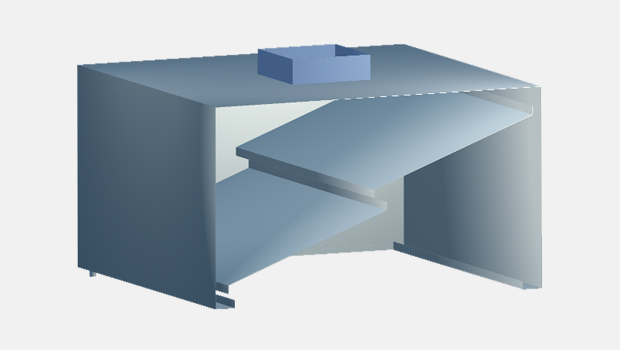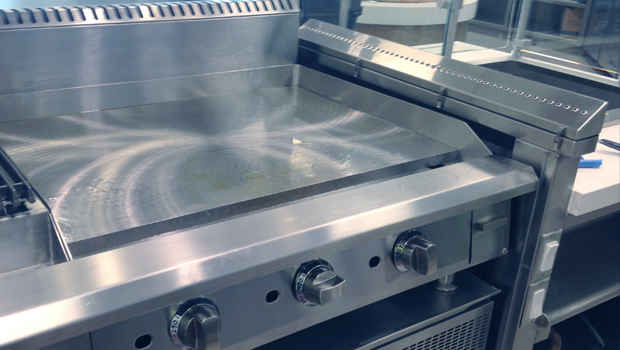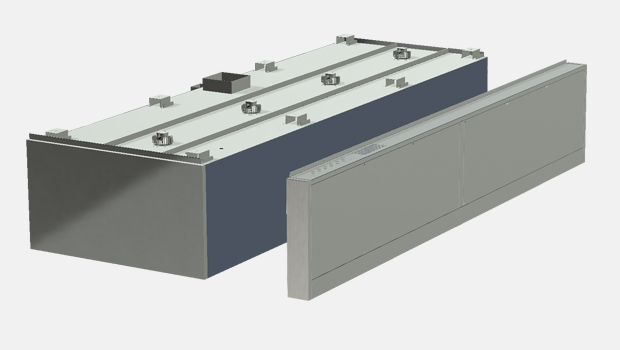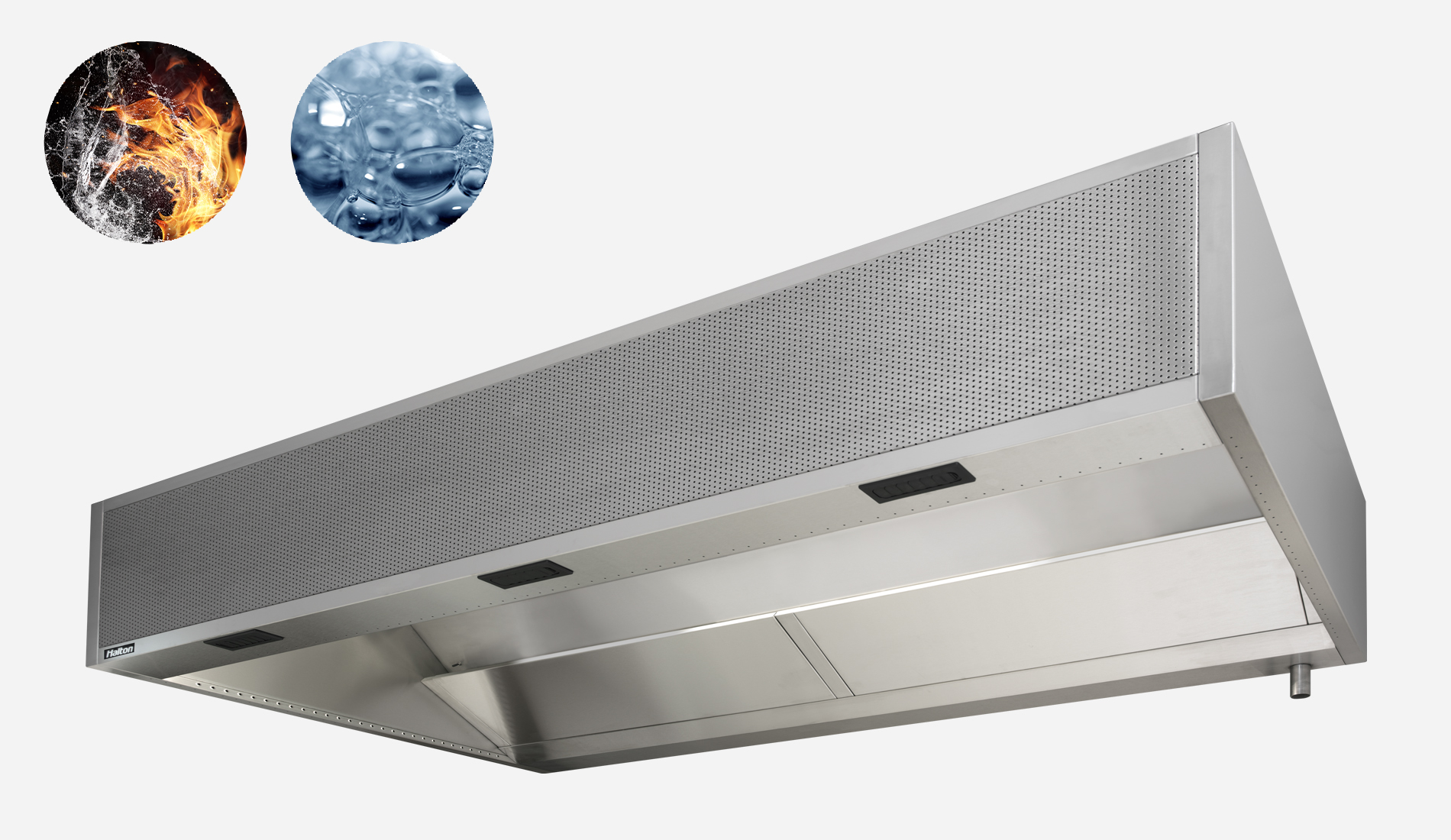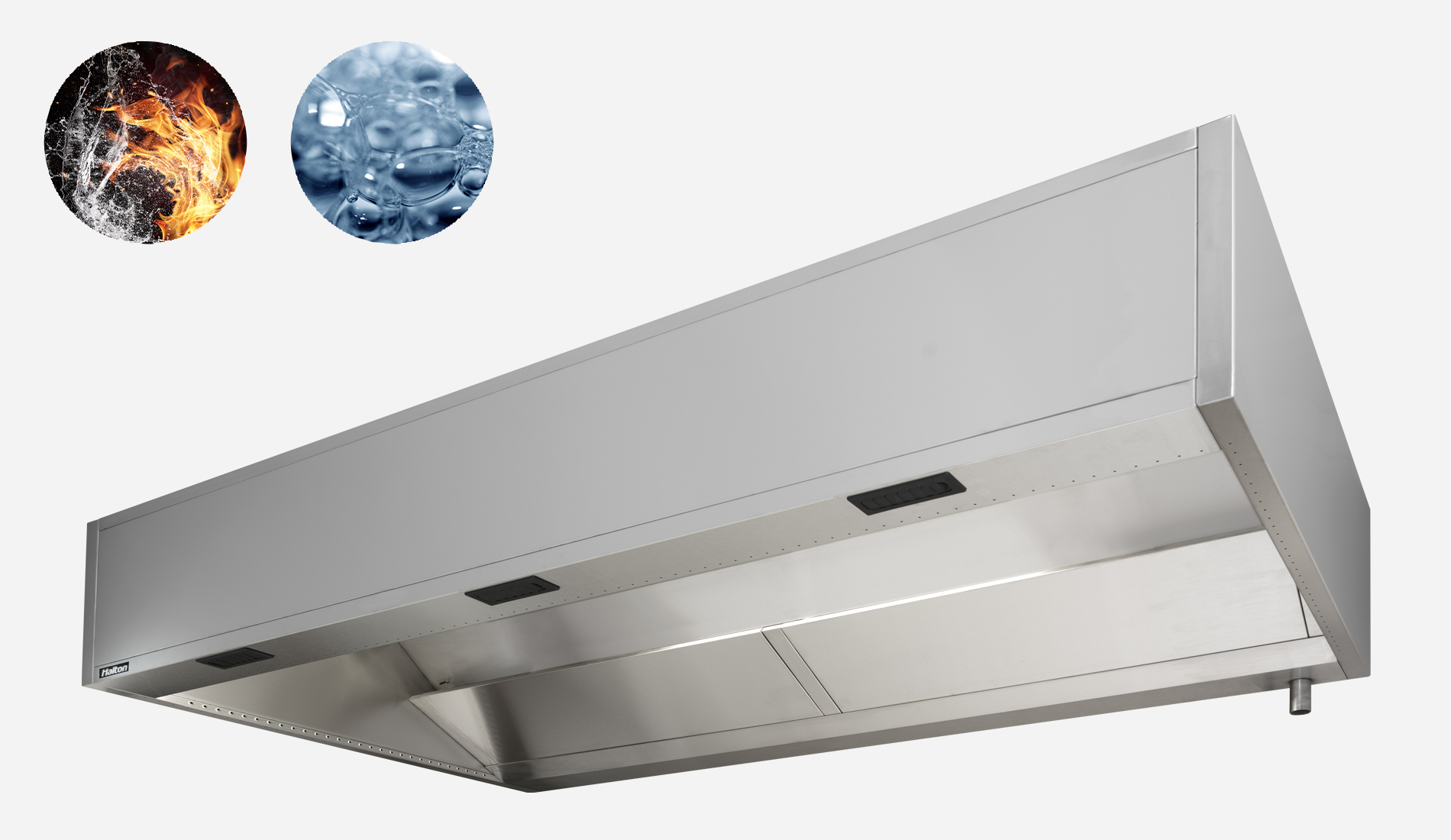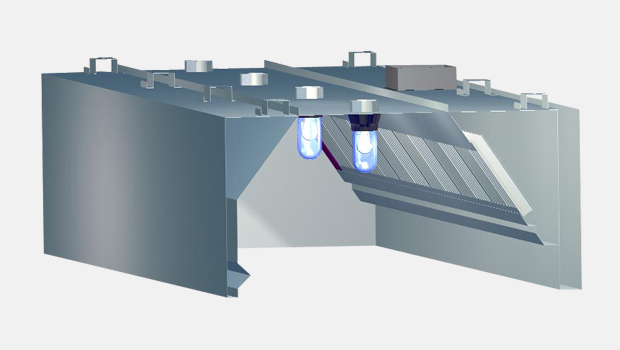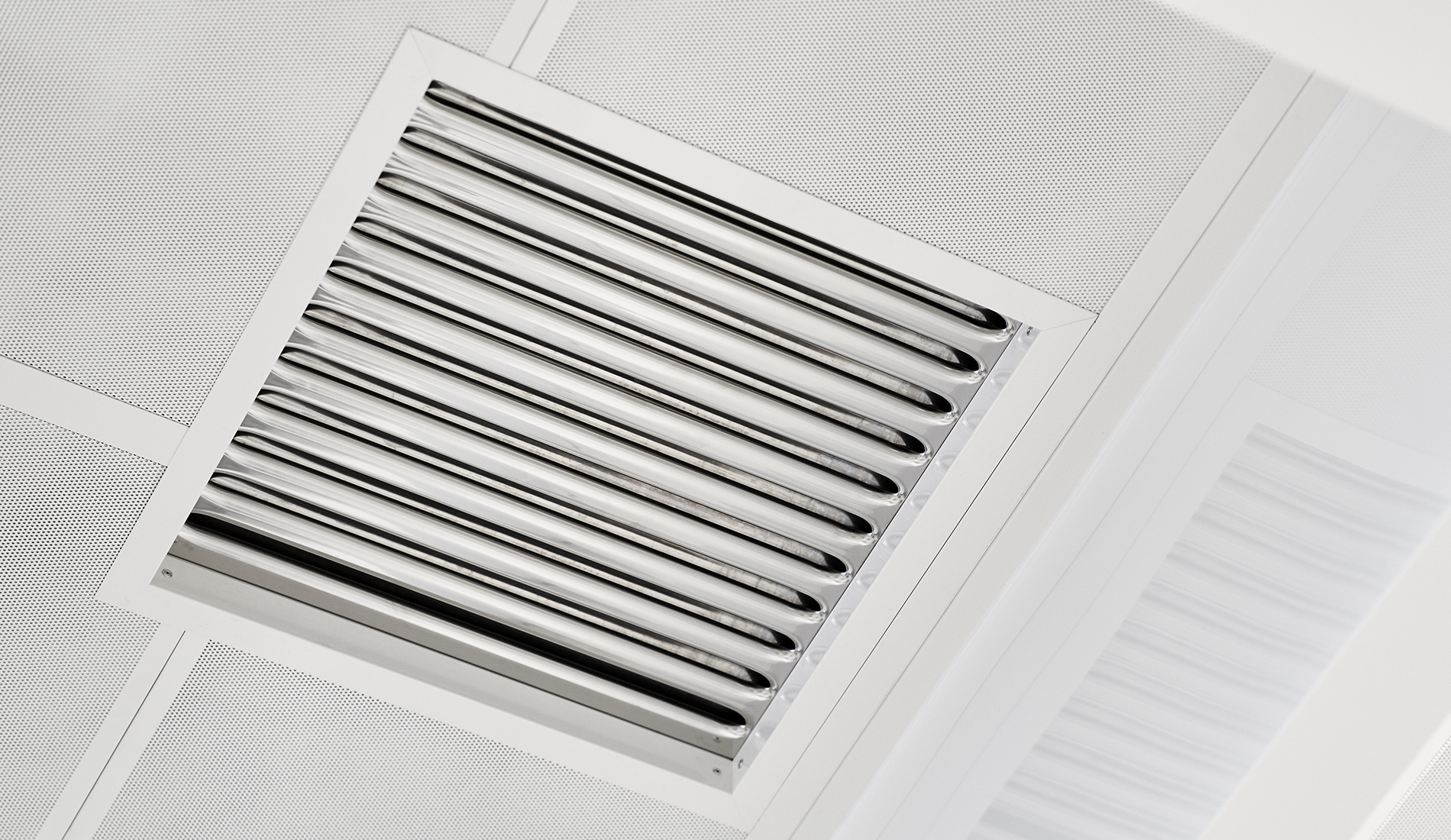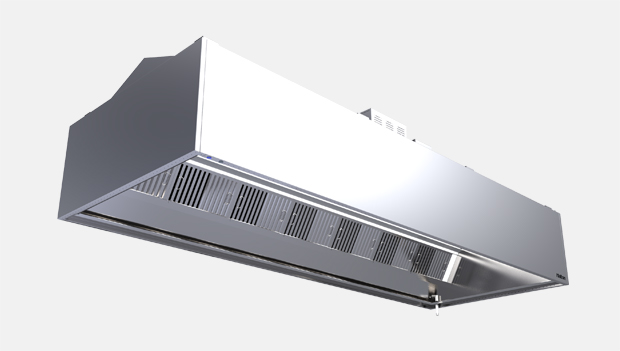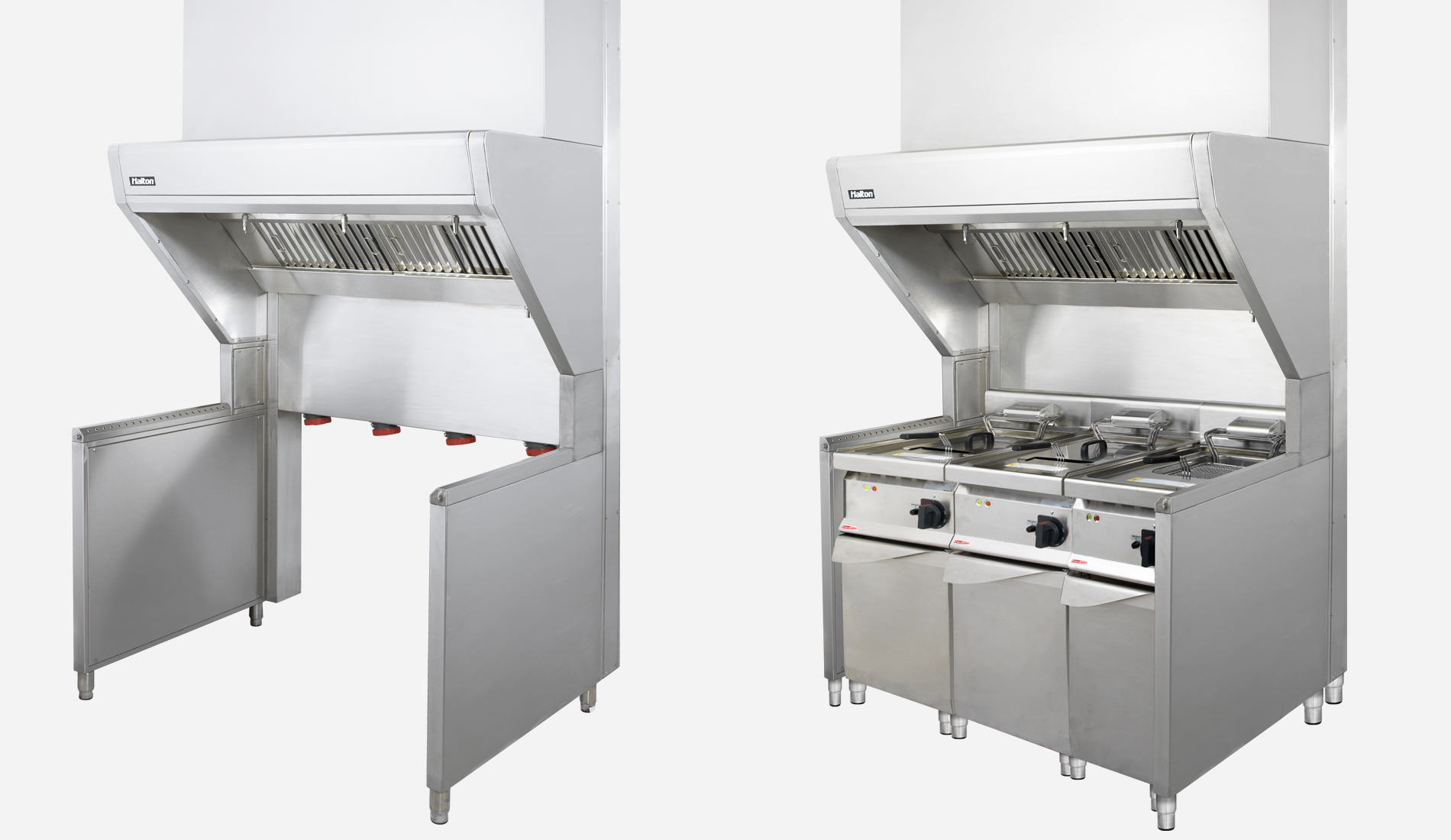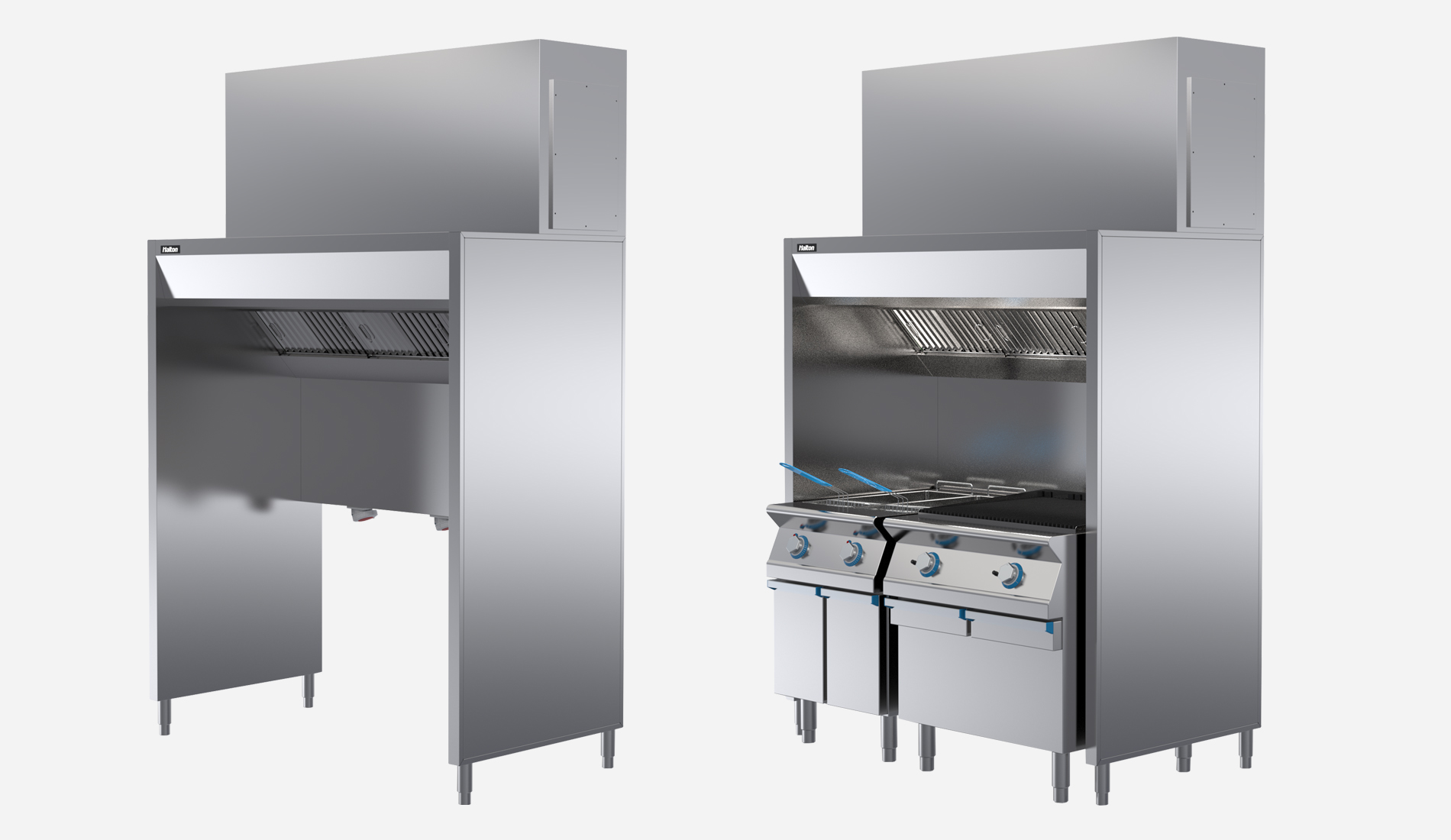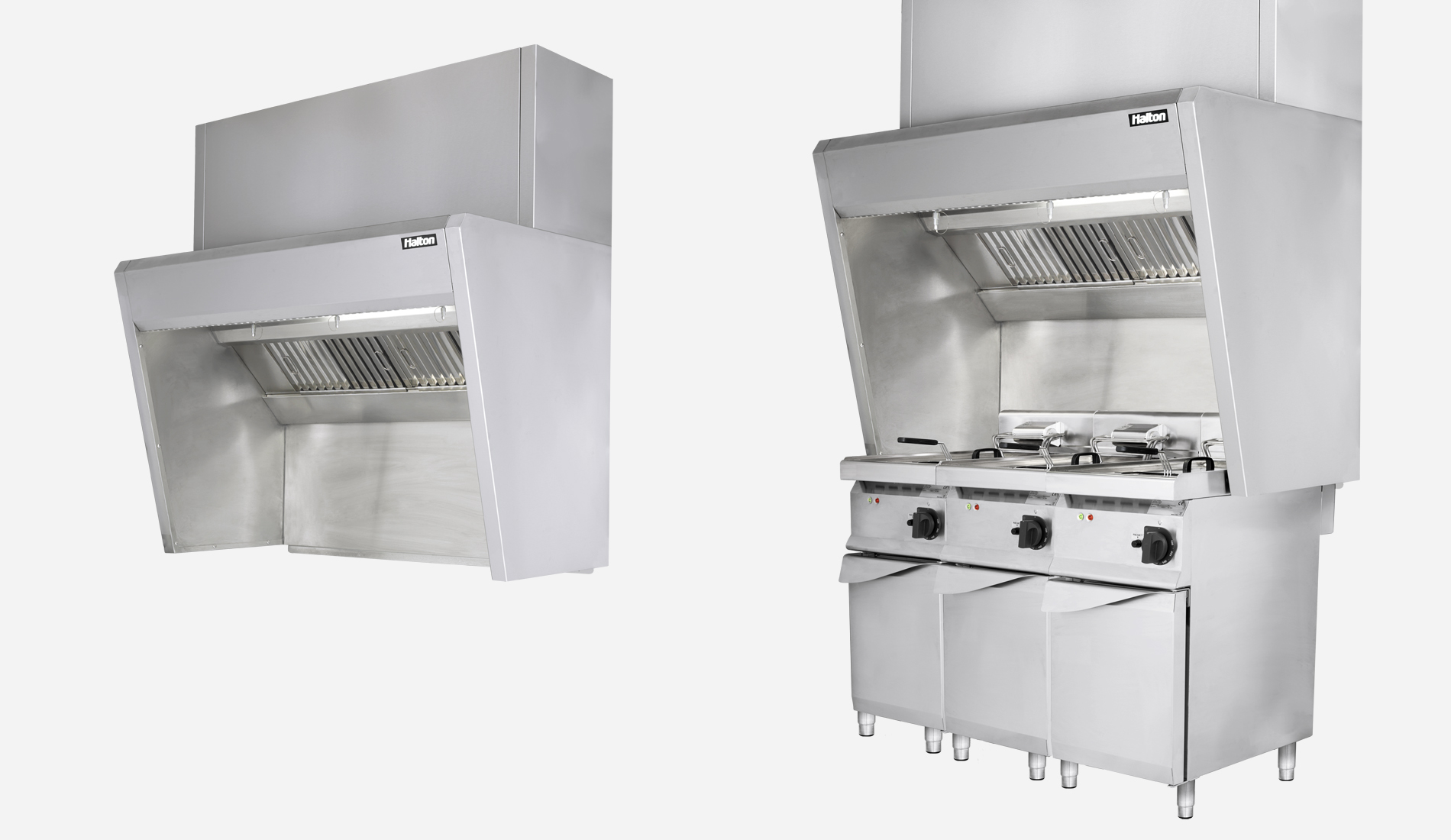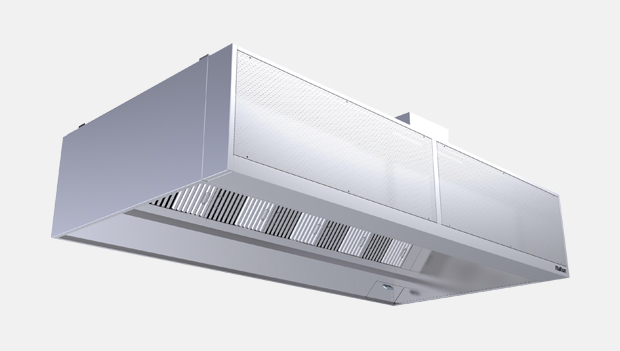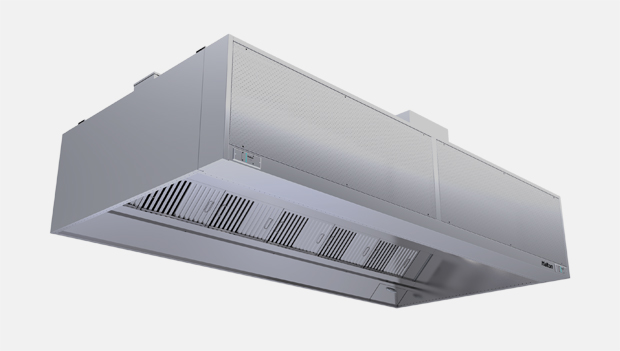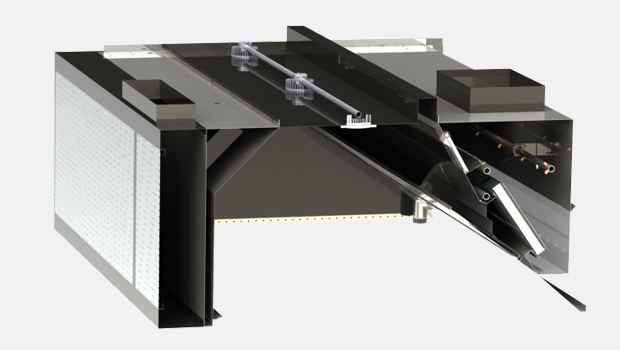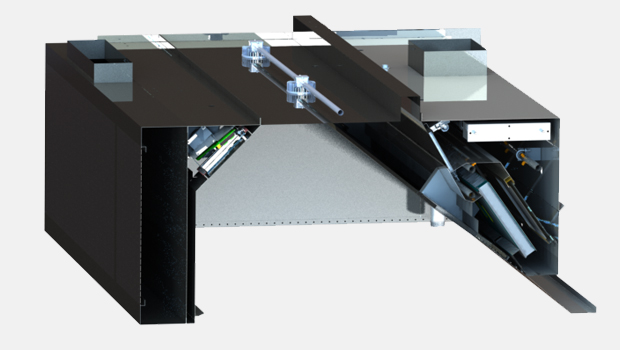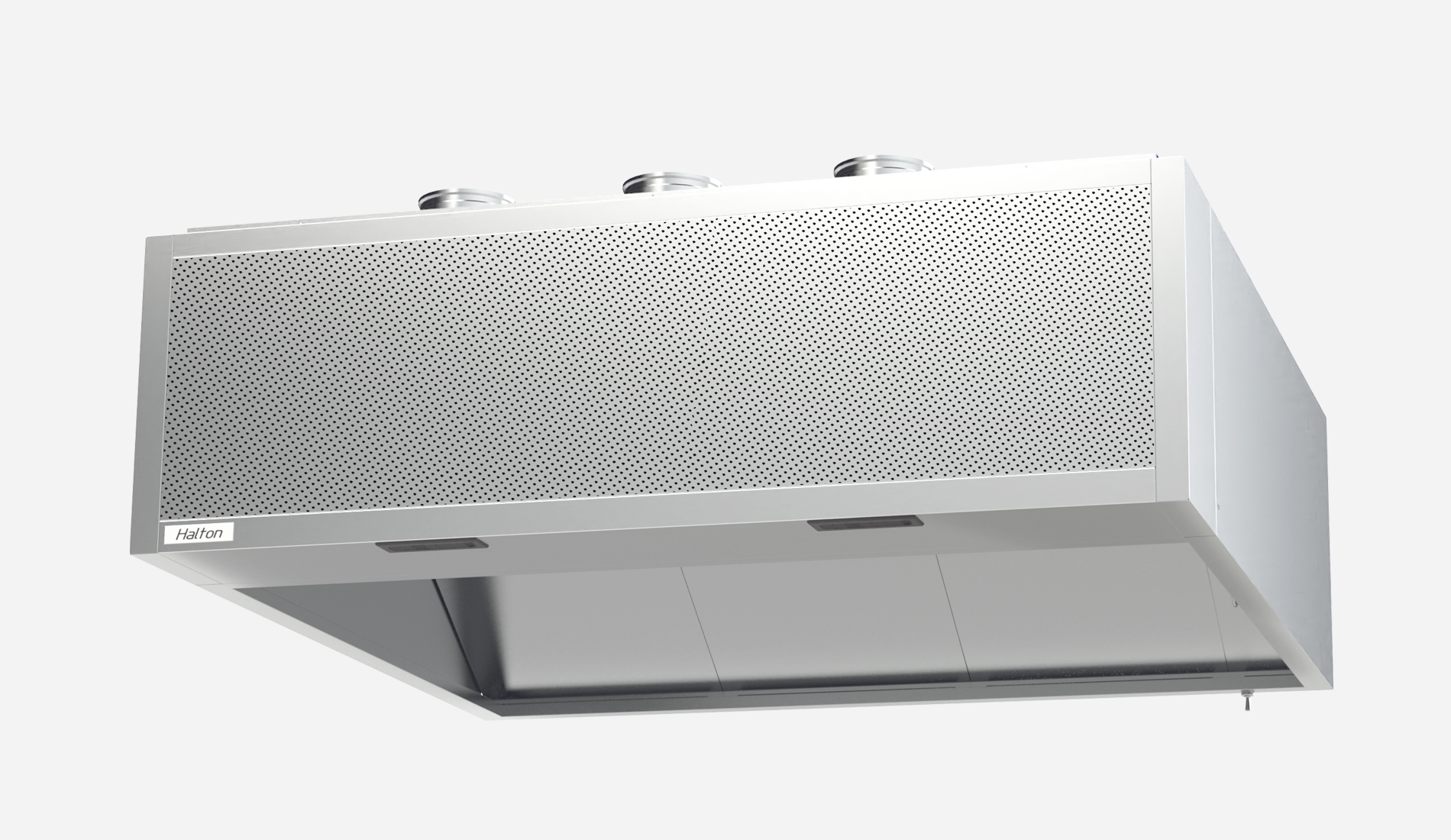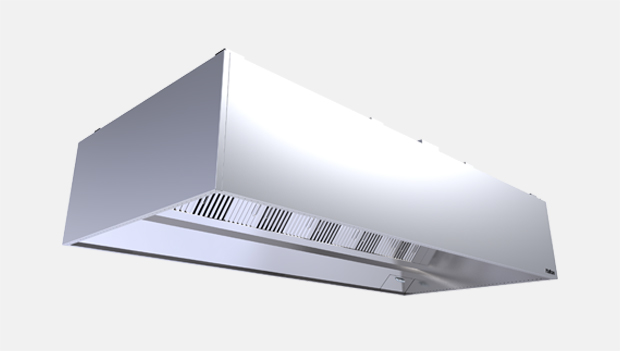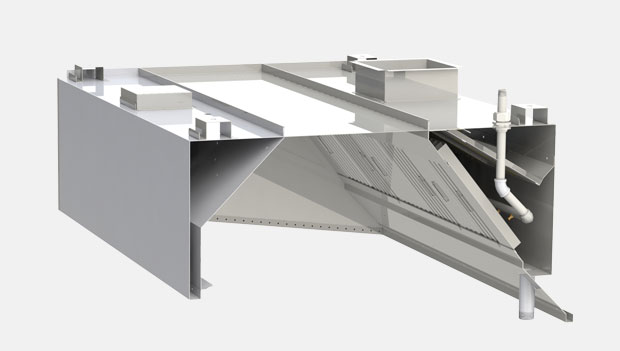Product / UCH-I
UCH-I Condensate exhaust hood (CE)
Main features
◦ For heavy steam-producing equipment ◦ Capture Jet™ technology ◦ KSA aerosol separators ◦ UV-C Capture Ray™ technology ◦ Halton Skyline culinary & Human Centric Lighting ◦ CE marked ◦ UKCA marked
Main benefits
- Drastic energy savings thanks to reduced airflows
- Optimal fire safety, hygiene and reduced impact on neighborhood thanks to efficient grease and odors neutralization
- Allows for safe and efficient overtime heat recovery
- Drastic savings on exhaust plenum and ductwork cleaning thanks to the insignificant formation of grease deposits
- Improved visual comfort and color render for the food
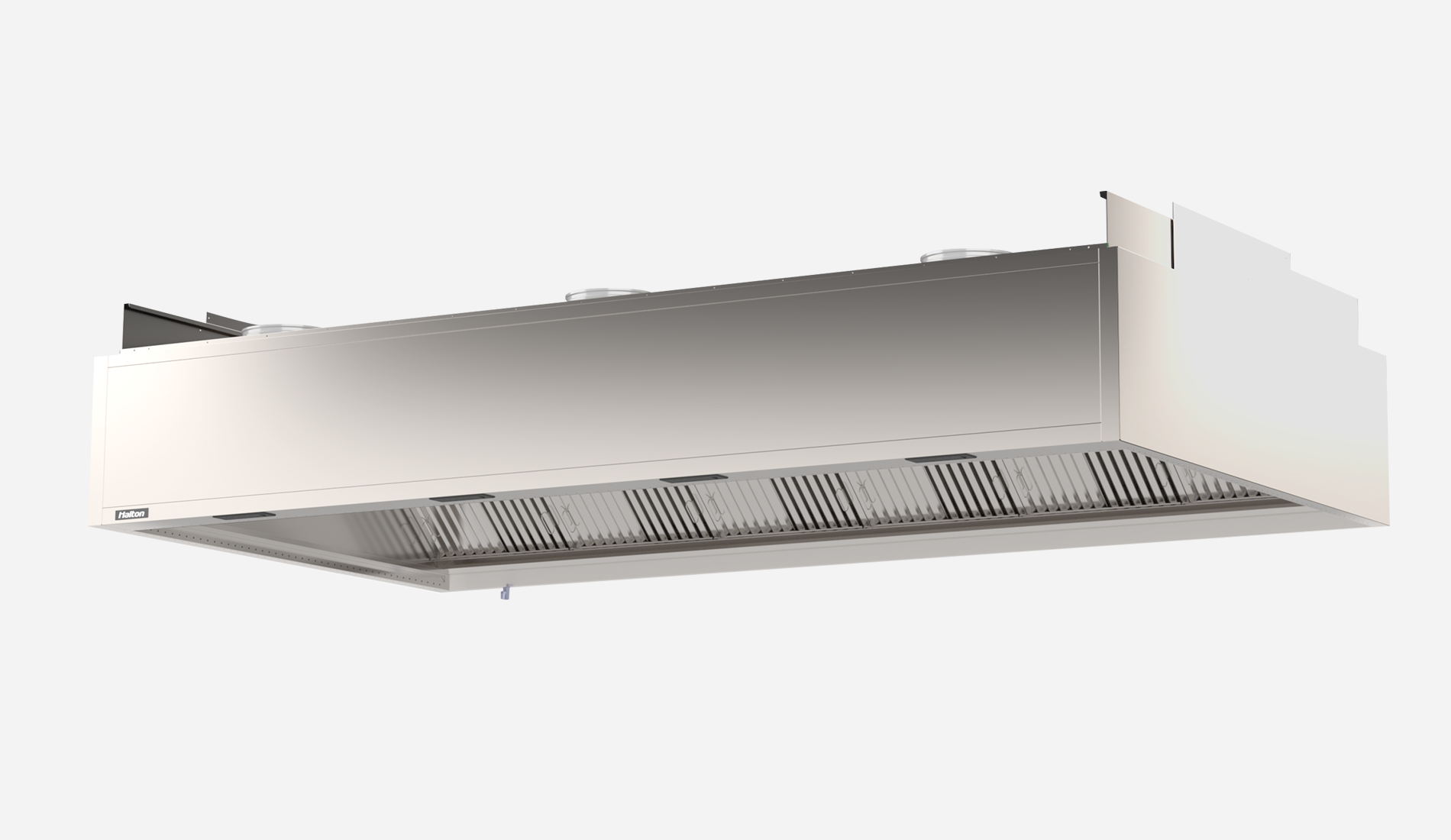
Overview
Applications
Halton Capture Jet™ hoods and ventilated ceilings are suitable for LEED (1), BREEAM (2), DGNB (3), RE2020 (4), and any other similar program or certification, particularly when combined with M.A.R.V.E.L. airflow and energy optimization technology. Specially designed for heavy steam producing equipment, they are particularly suitable to central kitchens, asian steam cooking and food industry.
In addition to the Capture Jets , UCH-I hoods are also equipped with the Capture Ray™ technology.
The Capture Ray™ technology is typically used in commercial kitchens with ducts that are difficult to access for cleaning, as well as in kitchens located in classified buildings with stringent fire safety requirements or in close proximity to residential buildings.
Description
UCH hoods are also designed to evacuate the condensation drips that may form inside their containment volume when used with heavy steam-producing equipment. The hoods are equipped with a gutter system installed on all four sides of the containment volume. This system collects water drips flowing down the sides and the hood's ceiling, whose diamond-point shape facilitates their flow. These provisions greatly improve hygiene by limiting the risk of condensation drips falling on the cooking appliance.
Considerable energy savings
- The Capture Jet™ technology allows for up to a 40% reduction in exhaust airflow rates.
- The combination with M.A.R.V.E.L. airflow and energy optimization technology allows for drastically reducing the exhaust volumes on top of that achieved by the Capture Jets. This results in up to a 64%+ total reduction.
- The energy savings on heating/cooling the makeup air then become massive (less air out, less air in!).
- The reduction of the draft risk and noise levels also improves the working conditions for the staff.
Improved safety, maintenance savings and respect for the neighborhood
- Designed to channel excess condensation on hoods' interior surfaces to a perimeter gutter system to greatly improve hygiene.
- KSA cyclonic aerosol separators are constructed of stainless steel in compliance with EN 16282-6. They are up to 95% efficient at capturing particles of 10 microns or larger.
- KSA separators also have a good efficiency-to-pressure loss ratio and are certified UL 1046, NSF, and LPS 1263.
- On UCH-I hoods, MFA mesh filters are used as as second filtration level to bring the total efficiency to up to 94% on 5 microns particles.
- The filtration level achieved efficiently slows down the build-up of grease deposits in the exhaust plenums and ductwork that could otherwise constitute a serious hygiene and fire safety hazard.
- This filtration level is also a prerequisite for the Capture Ray™ neutralization technology, which achieves optimal efficiency on medium to small grease particles, grease vapors, and VOCs.
- The Capture Ray™ technology keeps the exhaust plenums and ductwork virtualy free of grease deposits. The ductwork cleaning operations are cut down to the minimum legal frequency (if applicable) or to the strict minimum.
- The savings on the ductwork cleaning costs can't be higher.
- The hygiene and fire safety levels of the extract circuit are optimized to their highest standards.
- The Capture Ray™ technology also significantly reduces the odors discharged outdoor and thus lowers the kitchens' environmental impact on the neighborhood and the risk of complaints or legal action.
- The UV On Demand option activates the lamps only when cooking appliances are actually used. It saves up to one lamps-set where other UV systems require two.
Other features and benefits
- Construction compliant with NF EN 16282-2 (5).
- Integrated fan to supply air to the Capture Jets. No connection to the supply ductwork is required.
- The Capture Jets are automatically switched off when the ventilation system is turned off or operates at minimum airflow.
- Total access security to UV-C lamps that includes the detection of each filter presence.
- Advanced 24/7 distant monitoring capabilities thanks to Halton Connect IoT (Internet of Things) platform.
- Highest value of ownership thanks to Halton Connect & Care smart services available as an option from kitchens commissioning.
- Halton Skyline (HCL) LED culinary light provides the best visual comfort while contributing to further improve safety and energy savings.
- When extended to the whole kitchen and surrounding areas, the Human Centric version of Halton Skyline (HCL) directly contributes to chefs' and their teams wellbeing.
- Exhaust airflow rates are determined using an EN 16282-1 based calculation method, which takes into account the loads of the cooking or dishwashing equipment, the makeup air strategy, the configuration of the hoods or ventilated ceilings, and their capture and containment efficiency.
- Capture and containment efficiency tested in accordance with the ASTM 1704 standard.
- Quick and easy commissioning. Hoods delivered "ready to install", with all accessories included, such as light fitting, T.A.B.™ airflow measurement taps, and dampers for quick balancing on-site.
- Sturdier and easier to clean (less parts and fewer joints). Stainless steel construction.
(1) LEED - Leadership in Energy and Environmental Design (2) BREEAM - Building Research Establishment Environmental Assessment Method (3) DGNB - German Sustainable Building Council (4) RE2020 - French Environmental Regulation 2020 (5) NF EN 16282-2 Equipment for commercial kitchens - Components for ventilation in commercial kitchens - Part 2 : kitchen ventilation hoods - Design and safety requirements (6) HACCP - Hazard Analysis Critical Control Point
Construction
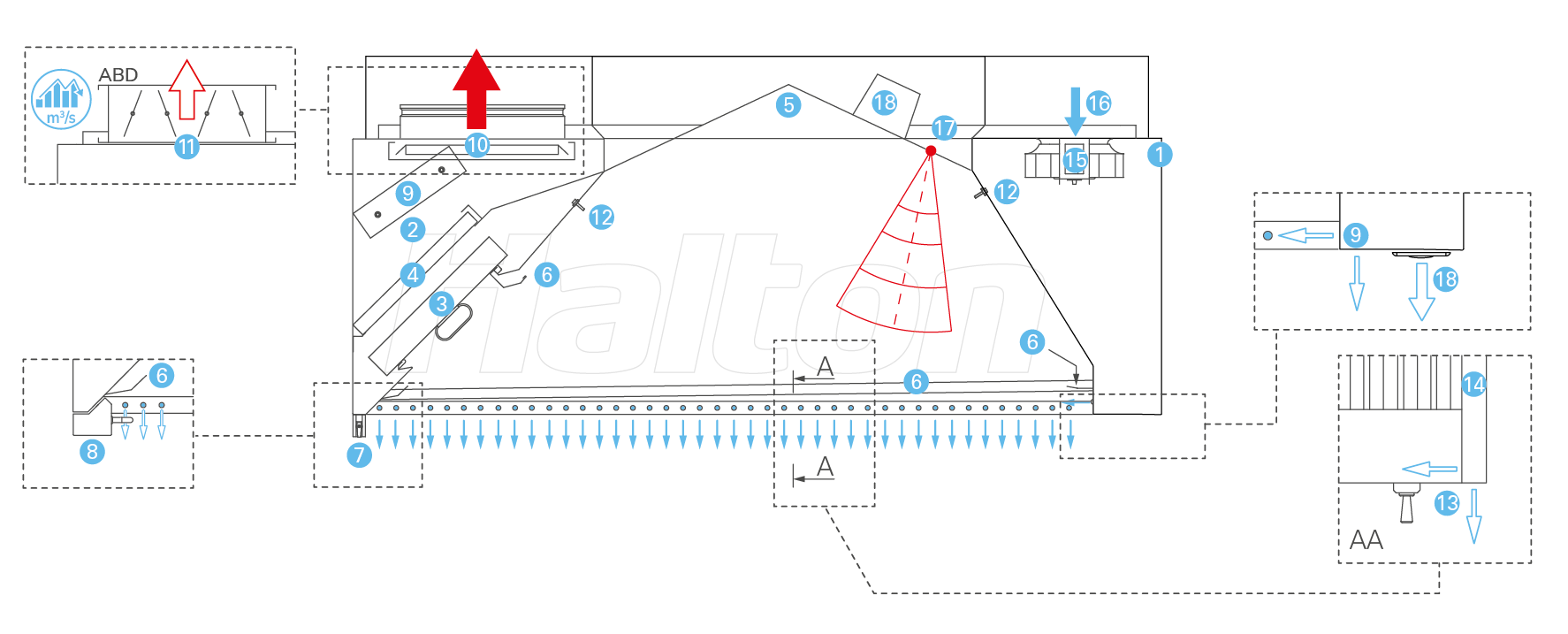
- Visible outer envelope in stainless steel AISI 304 (1,0 mm).
- Exhaust plenum construted from stainless steel AISI 304 (1 mm thick) and galvanized steel (top).
- KSA aerosol separators.
- MFA filters as second filtration stage.
- Special diamond-point shaped roof.
- Perimeter gutter system.
- Condensates drain.
- Collection tray as an option.
- UV-C lamps cassette mounted on runners for an easy removal.
- Exhaust connection(s) and sliding damper(s).
- When the kitchen is equipped with M.A.R.V.E.L. airflow and energy optimization technology (MRV), the sliding damper is replaced by ABD automated balancing damper.
- T.A.B.™ (Testing And Balancing) pressure port(s) for quick airflow calculation during ductwork balancing operations.
- Front Capture Jet™ nozzles.
- Double skin sides.
- Integrated Capture Jet™ fan.
- Capture Jet™ fan air inlet.
- Halton IRIS™ infrared sensor (used for the optional M.A.R.V.E.L., UV on Demand or FireWatch technologies). (used for the optional M.A.R.V.E.L. or UV on Demand technologies).
- Halton Skyline LED culinary LED spots flush-mounted on the hood roof (with individual protective cover on top).
M.A.R.V.E.L. ready option: To allow for later installation of M.A.R.V.E.L. airflow and energy optimization, each hood can be equipped only with its ABD slim automated balancing damper, which is typically very difficult to install afterward.
Dimensions
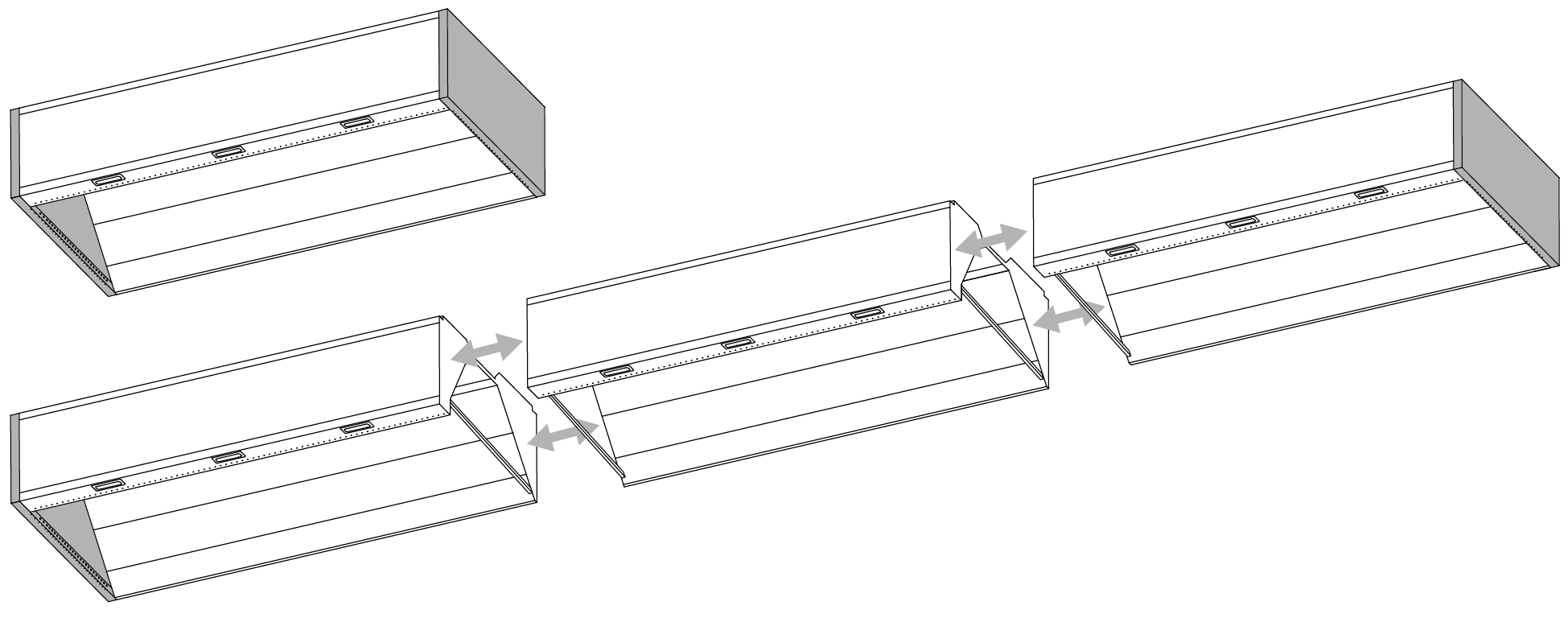
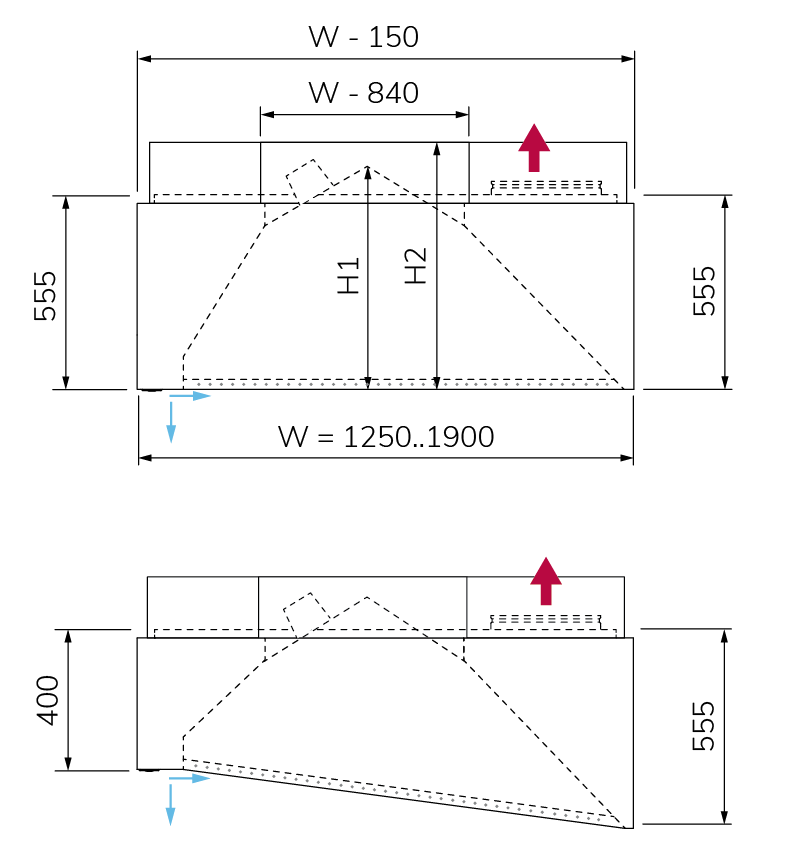
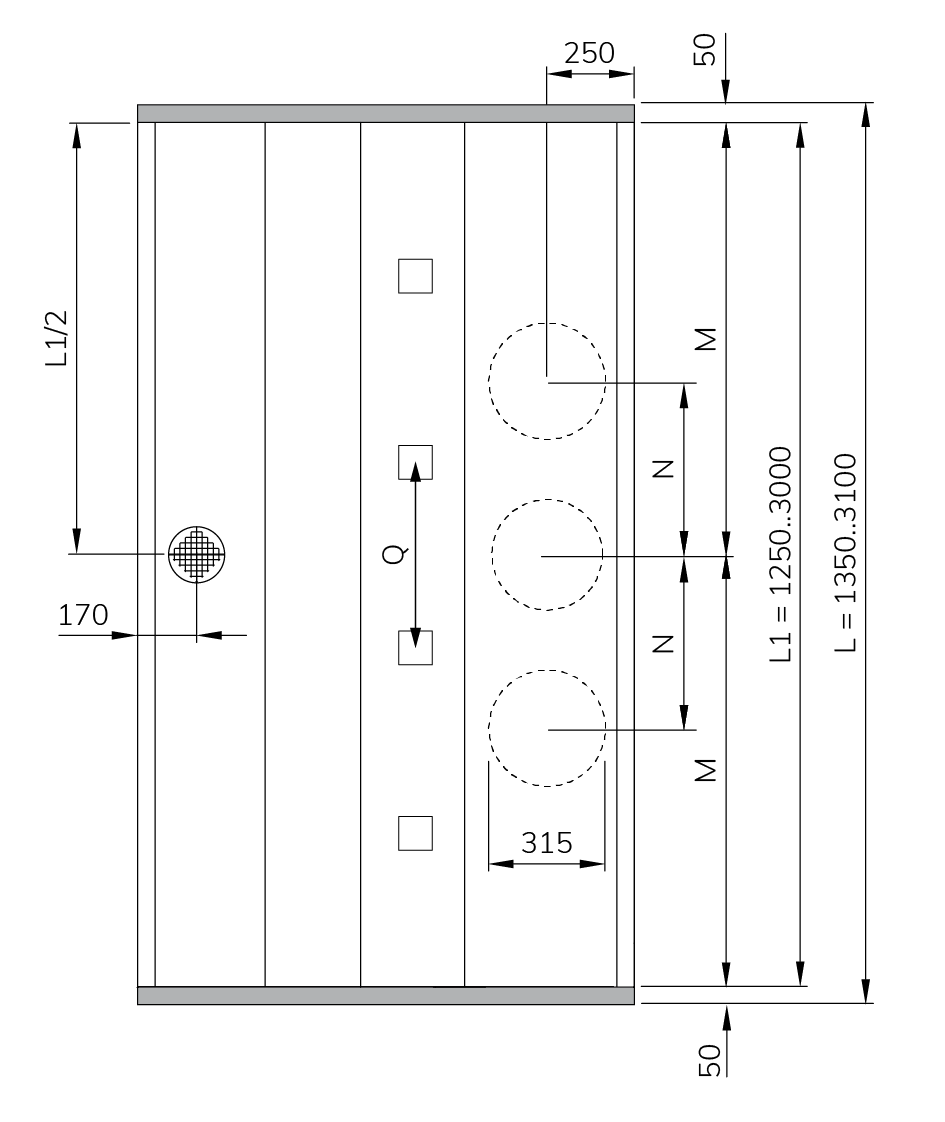

- Above 3100 mm, hoods are an assembly of separate sections to make transportation and site handling easier.
- Number of connections to be determined based on the sections length and on the calculation of the airflow rates.
- Rectangular connections on request.
Admissible and calculated airflows
Admissible airflows
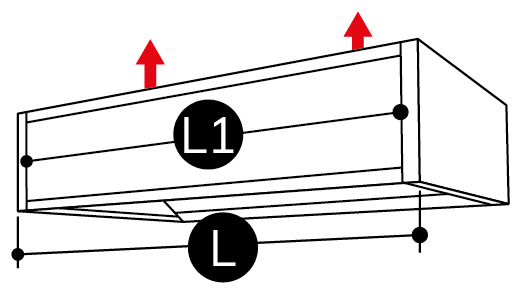

(1) QE Min..Max/KSA = 505..685 m3/h | ∆PT.A.B. Min..Ma = 50..91 Pa
(2) Side Jets with W=1300 mm
Calculated airflows
The calculated exhaust airflow rates are determined with a EN 16282-1 based calculation method. It relies on the evaluation of the convective flows' volume (air mixed with heat, steam, grease, smoke and other pollutants) generated by the cooking appliances, depending on their type, on the energy they use and their installation conditions (central, on a wall, in an angle).
The air volume required to remove the convective loads is then calculated depending on:
- The hood or ventilated ceiling installation height;
- The makeup-air strategy (mixing or displacement);
- The hood or ventilated ceiling capture efficiency according to ASTM 1704-12 standard.
UCH-I hood reduces the exhaust airflow rates(1) by up to 40% compared to traditional hoods.
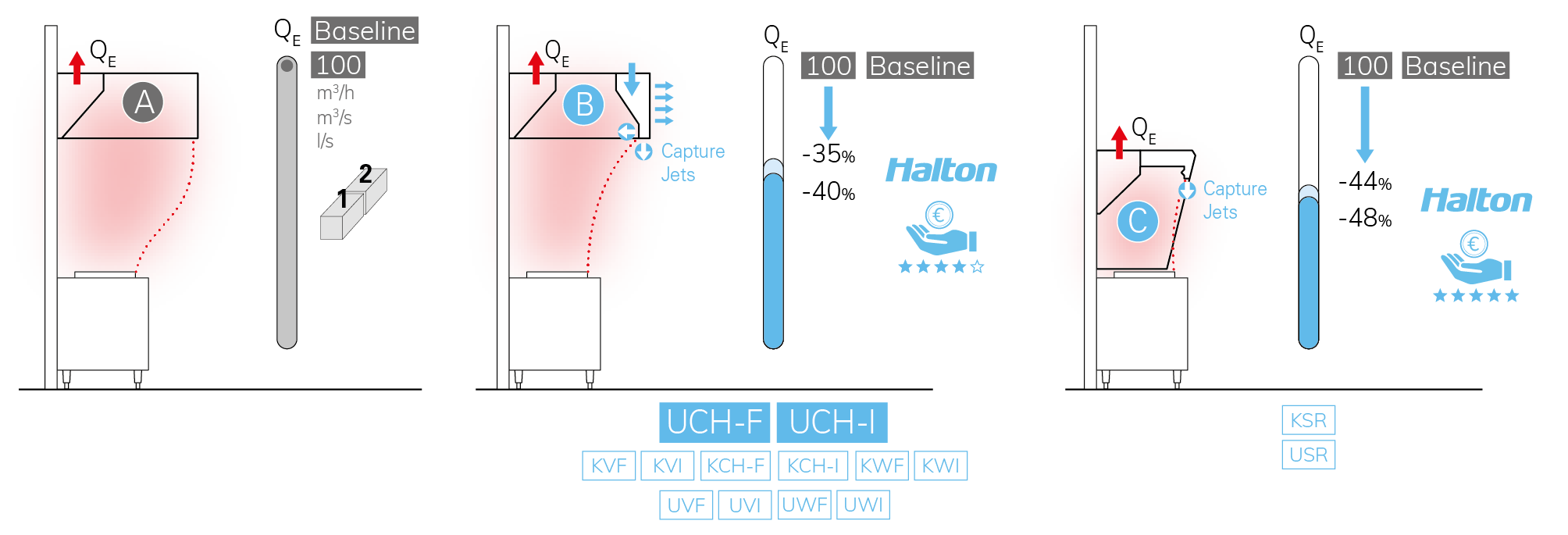
(1) This scale is indicative and based on wall mounted hoods, opened on 3 sides, equipped with a same cooking bloc, whatever it is. The variation in exhaust airflow reduction for a given hood type is due to the makeup-air type (mixing or displacement). Other parameters do impact the final airflow rates. Our sales teams are at your disposal to provide you with a calculation note, depending on your kitchen configuration.
Downloads
"*" indicates required fields
